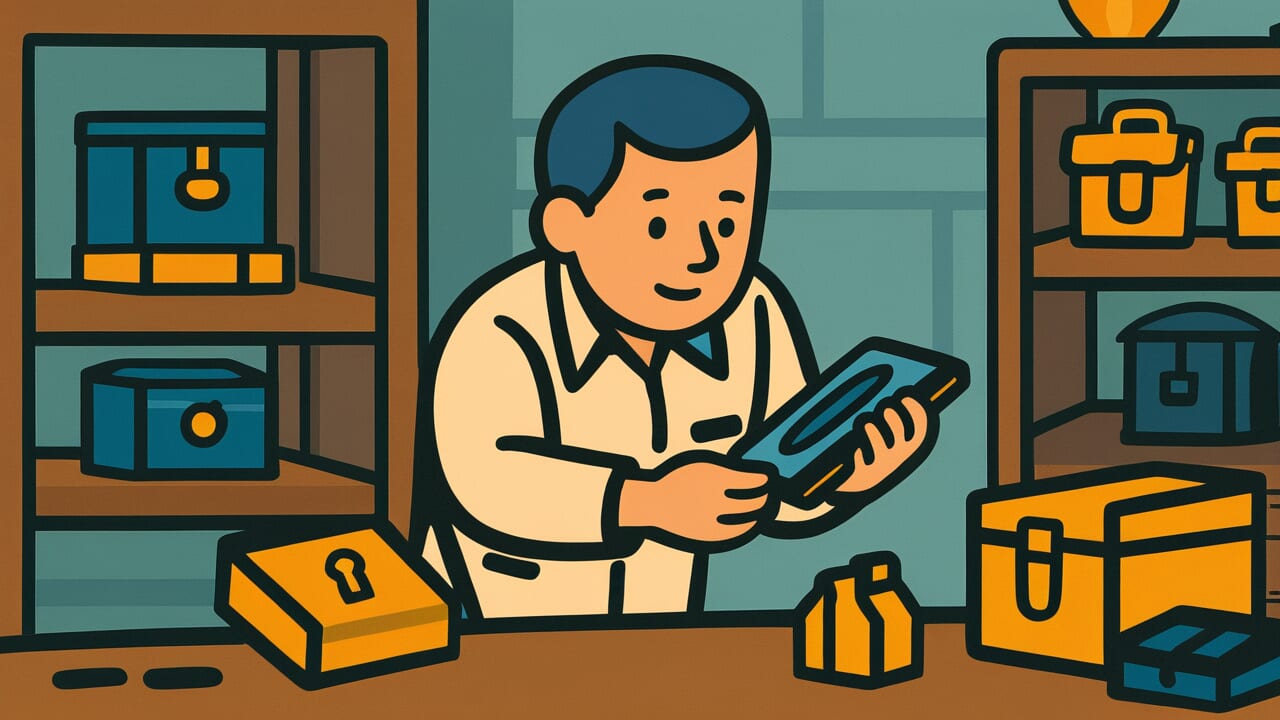How to Read “Counting your neighbor’s treasures”
tonari no takara wo kazoeru
Meaning of “Counting your neighbor’s treasures”
“Counting your neighbor’s treasures” is a proverb that warns against constantly envying other people’s wealth and fortunate circumstances. It describes being lost in thoughts about things beyond your reach.
The saying refers to someone who ignores what they already have. Instead, they focus on their neighbor’s possessions and good fortune, counting them one by one.
This proverb applies to people who compare themselves to others and build up resentment. It describes those who envy others without making any effort to improve their own situation.
It’s especially used to criticize people who desire things they can’t actually obtain. These people spend all their time thinking about what they don’t have.
Even today, people scroll through social media and envy others’ lives. They feel dissatisfied with their own existence. This is exactly what the proverb describes.
The important thing isn’t counting your neighbor’s treasures. It’s focusing your efforts on enriching your own life. This is what the proverb teaches us.
Origin and Etymology
The exact first appearance of this proverb in literature is unclear. However, based on its structure, it likely comes from the everyday experiences of Japanese people.
The word “neighbor” refers to the person physically closest to you. In old Japan, houses were built very close together. People could easily see into each other’s lives.
You could see your neighbor’s garden over the fence. You could hear the sounds of their daily life. In this environment, other people’s lifestyles were always visible.
The phrase “counting treasures” reveals an interesting psychology. The proverb doesn’t just say “envy.” It specifically uses the verb “count.”
This shows someone checking and calculating their neighbor’s possessions one by one. It represents an obsessive attachment. There’s something both comical and sad about knowing someone else’s belongings in such detail when they’re not even yours.
In farming villages, it was relatively easy to see how much your neighbor harvested. You could see how wealthy their household was.
In this environment, some people worried more about their neighbor’s harvest than tending their own fields. This likely gave birth to the proverb.
Our ancestors keenly observed this human tendency. They saw people ignore the happiness in their own hands while obsessing over others’ good fortune.
Usage Examples
- Stop counting your neighbor’s treasures by worrying about your coworker’s promotion and new car. Focus on your own work instead.
- That person never tries to find their own happiness. They’re always counting their neighbor’s treasures and envying others.
Universal Wisdom
“Counting your neighbor’s treasures” brilliantly captures the structure of human desire and dissatisfaction. Why do people’s eyes go to what others have rather than what’s in their own hands?
It’s because humans are fundamentally comparative creatures. It’s hard to measure our own happiness by absolute standards. We tend to judge it through relative comparison with those around us.
Moreover, people get used to what they already have. They lose sight of its value. Meanwhile, what others have seems fresh and shines brighter than it really is.
This proverb has been passed down for generations because this human nature never changes. In ancient farming villages and modern cities alike, people compare themselves to their neighbors and want what they don’t have.
Thinking more deeply, the proverb uses the word “counting” to highlight the emptiness of this action. No matter how much you count your neighbor’s treasures, they’ll never become yours.
Counting produces nothing. It only wastes time and mental energy.
Our ancestors knew that happiness doesn’t come from comparing yourself to others. It comes from within yourself. This proverb gently but firmly teaches us to turn our outward gaze inward.
When AI Hears This
The human brain has a region called the ventral striatum. This area activates when we feel rewarded. Interestingly, it responds more strongly to relative advantage than absolute gain.
It reacts more to “I got $1 million while my neighbor got $500,000” than to “I got $1 million.” Conversely, if you get $1 million but your neighbor gets $2 million, your brain shows the same response as experiencing a loss.
This mechanism formed through evolution. In primitive times, survival didn’t depend on the absolute amount of food. It depended on your relative position within the group.
Higher status meant priority access to resources. It increased your chances of having offspring. In other words, the brain is designed to constantly calculate “how am I compared to others” rather than “what do I have.”
Neuroscience research shows that when we see others succeed, the anterior cingulate cortex activates. This region overlaps with areas that process discomfort and pain.
When counting your neighbor’s treasures, your brain literally feels “pain.”
This neural mechanism matches the phenomenon of feeling down after seeing happy posts on social media. The brain’s reward system has a structural bug. It searches for comparisons before properly evaluating what you have.
Lessons for Today
This proverb teaches you a truth: happiness doesn’t exist in comparison. Open social media and you’ll see someone’s success, someone’s happy moments flooding your screen. But what meaning is there in envying them?
What matters is changing the direction of your gaze. If you have time to count your neighbor’s treasures, use it to enrich your own life.
You have your own strengths. You have possibilities that belong only to you. You can’t see them through comparison with others.
Of course, learning from others is important. But learning and envying are different things. Learning helps you grow. Envy only exhausts your heart.
Starting today, try counting what you have at the end of each day. Your health, family, friends, small joys. Count your own treasures, not your neighbor’s.
Then you’ll surely notice how rich your life already is. Happiness is always in your hands.



Comments